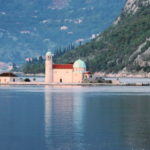Recent elections in Kosovo saw the opposition defeat long-standing incumbents, electing a new generation with fresh talent and integrity. Jeta Xharra (Balkan Investigative Reporting Network) explains the role that civil society played in making it happen. It is a rare moment…
Blog Archives
In Kosovo, journalists and civil society beat organised crime by getting more organised
Posted in Sussex-Harriman conference
Can the European Union tackle corruption and state capture?
While the EU is far from a silver bullet, Dimitar Bechev argues that it is still a badly-needed ally in strengthening the rule of law in the Balkans. But for enlargement to make good on its original promise, the EU…
Posted in Sussex-Harriman conference
Caught in a vicious circle: how corrosive capital perpetuates state capture in the Balkans
In discussing the mutually reinforcing role of authoritarianism and ‘corrosive capital’, Tena Prelec argues that it is not enough to attract foreign investments to stimulate economic growth that will benefit the whole population; it is essential to guarantee the right…
Posted in Sussex-Harriman conference
What we talk about when we talk about state capture: reflections from Serbia

A life lived in Belgrade is a life lived in four countries. A lot has changed, but not much has changed for the better. Slobodan Georgiev (Balkan Investigative Reporting Network) reports with wry sarcasm on the realities of life as a…
Posted in Sussex-Harriman conference
Investigative journalists must show citizens the way: We can clean up government without resorting to rancour or nationalism
In a reflection on the role of journalists worldwide, and in the Balkans in particular, Aida Cerkez and Rosemary Armao vent their frustration about one of the biggest challenges of investigative reporting: how to make people care. Do citizens really…
Posted in Sussex-Harriman conference
Politicised institutions are key obstacle to fighting corruption in Montenegro

Montenegro has on the face of it made good progress in adopting anti-corruption laws, but frequent political scandals suggest they are not being implemented. Jovana Marović, Executive Director of the Politikon Network, a think tank based in Podgorica, and a…
Posted in Sussex-Harriman conference
Civil society needs support to fight corruption and organised crime in the Western Balkans
Civil society organisations (CSOs) and investigative journalists in the Western Balkans are critical to raising awareness about fighting corruption and organised crime, as well as supporting state authorities to develop effective strategies. But they lack capacity and resources to address…
Montenegro: Captured by Corruption
In the first of a series of posts by investigative journalists and civil society activists working on exposing corruption in the Balkans, Milka Tadić Mijović (President, Centre for Investigative Journalism of Montenegro) discusses impunity in Montenegro and the complicity of the…
Posted in Sussex-Harriman conference, Uncategorized
Strengthening the rule of law in the Western Balkans: Why should the EU care?
One of the main conditions set by the EU for aspiring members in the Western Balkans is to strengthen the rule of law, but the success of these efforts has so far been relatively limited. Drawing on a new study, Tena…
Posted in Uncategorized
The funding of politics and the challenge of tackling corruption
The SCSC’s Sam Power, an ESRC-funded PhD student, writing his thesis on the complex relationship between party funding and corruption, comments here on the challenge of getting the funding of politics right … On 3rd February the EU published its…


Recent Comments